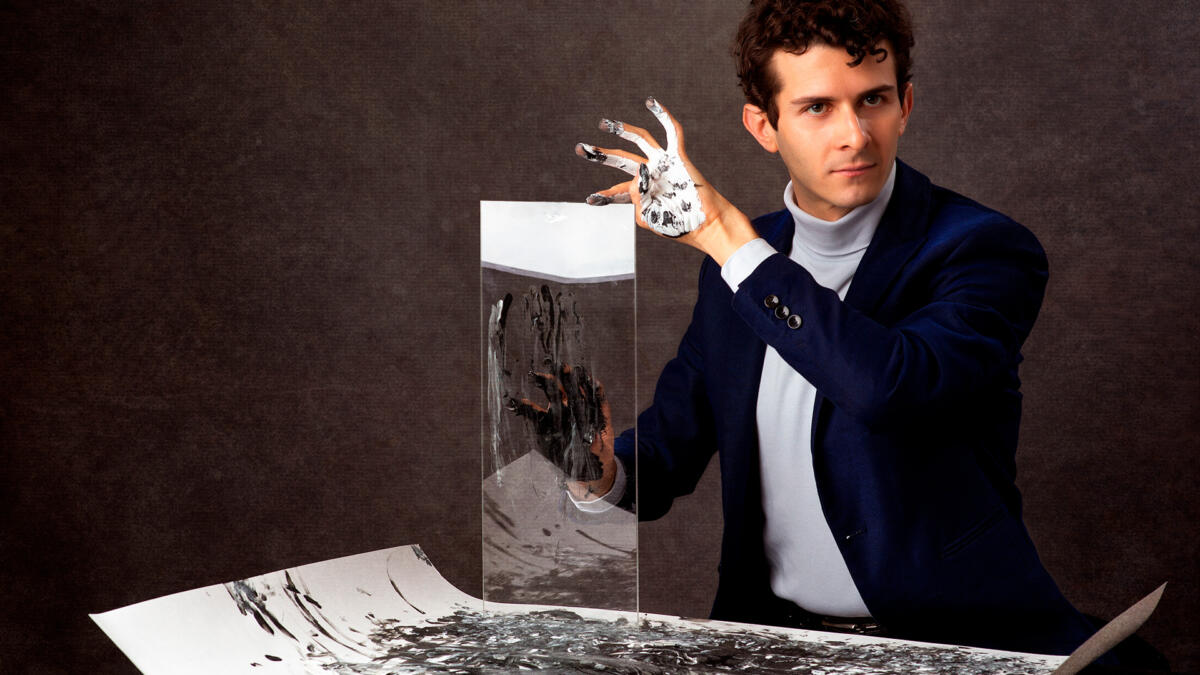Robert Fleitz: Recomposing Time
Robert Fleitz’s first doctoral concert

“The mind seems to be even stronger than reality…it collects and re-collects what otherwise would be doomed to ruin and oblivion.” Hannah Arendt, 1978 from “The Life of the Mind”
Musical hybridity – the combination of multiple musical kinds into one work – begins to be foregrounded in the 1960’s and 70’s, with a group of adventurous composers who made political and aesthetic statements with their works.
This concert is an international survey of the manifestations of these works at the piano. Alfred Schnittke identified this trend in his article Polystylistic Tendencies in Modern Music. The composers on this program are all writing within a decade of Schnittke’s text, but from completely disparate geographical and musical backgrounds. Thus, placed together, we begin to trace the beginnings of polystylism as a recognizable phenomenon.
This program offers ample space to represent Estonia, Latvia, Ukraine, and Russia, as the compositional histories of the former Soviet Union are often the most familiarly associated with the term polystylistics. These trends are placed next to composers from the United States and the Netherlands, in order to provide an international perspective. Overall, the concert foregrounds how these composers use reconsideration of time to respond to their own personal tragedies and political turmoils.
Performers
- Robert Fleitz, piano
Programme
Read the full programme here
Imants Zemzaris: Warsaw Triptych (1973)
Peter Schat: Anathema (1969)
Julia Perry: Prelude (1946, revised 1962)
George Rochberg: Nach Bach (1966)
Kuldar Sink: Piano Sonata No. 3 (1975)
Intermission
Valentin Silvestrov: Piano Sonata No. 2 (1975)
Alfred Schnittke: Piano Sonata No. 2 (1990)
Further information: Janne Ikäheimo, janne.ikaheimo@uniarts.fi
“The mind seems to be even stronger than reality…it collects and re-collects what otherwise would be doomed to ruin and oblivion.” Hannah Arendt, 1978 from “The Life of the Mind”
Musical hybridity – the combination of multiple musical kinds into one work – begins to be foregrounded in the 1960’s and 70’s, with a group of adventurous composers who made political and aesthetic statements with their works.
This concert is an international survey of the manifestations of these works at the piano. Alfred Schnittke identified this trend in his article Polystylistic Tendencies in Modern Music. The composers on this program are all writing within a decade of Schnittke’s text, but from completely disparate geographical and musical backgrounds. Thus, placed together, we begin to trace the beginnings of polystylism as a recognizable phenomenon.
This program offers ample space to represent Estonia, Latvia, Ukraine, and Russia, as the compositional histories of the former Soviet Union are often the most familiarly associated with the term polystylistics. These trends are placed next to composers from the United States and the Netherlands, in order to provide an international perspective. Overall, the concert foregrounds how these composers use reconsideration of time to respond to their own personal tragedies and political turmoils.
Performers
- Robert Fleitz, piano
Programme
Read the full programme here
Imants Zemzaris: Warsaw Triptych (1973)
Peter Schat: Anathema (1969)
Julia Perry: Prelude (1946, revised 1962)
George Rochberg: Nach Bach (1966)
Kuldar Sink: Piano Sonata No. 3 (1975)
Intermission
Valentin Silvestrov: Piano Sonata No. 2 (1975)
Alfred Schnittke: Piano Sonata No. 2 (1990)
Further information: Janne Ikäheimo, janne.ikaheimo@uniarts.fi